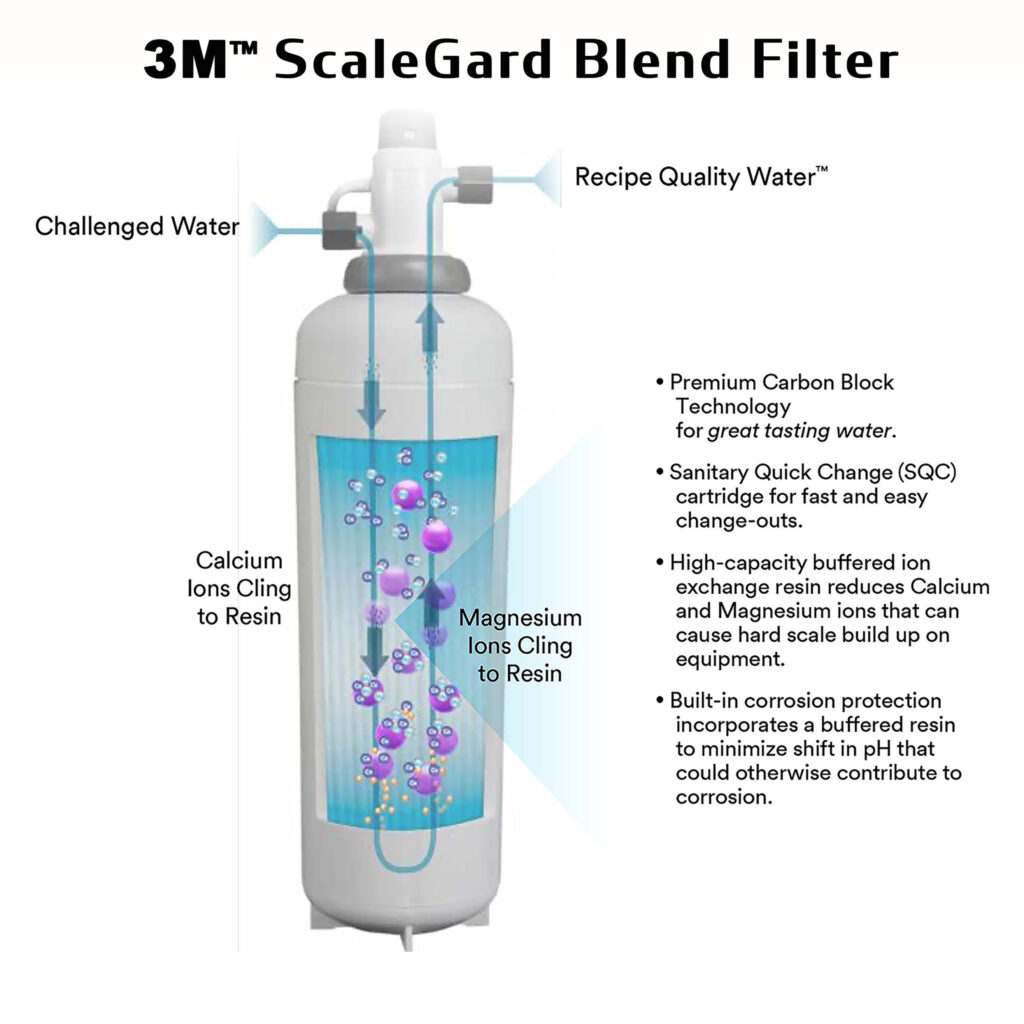Your commercial coffee machine, whether you’re a cafe, restaurant or pub, is at the workhorse of your business. If there’s one thing you can be certain of, it’s that your coffee machine will be used on a daily basis and likely very heavily.
If your coffee machine is not cleaned or maintained thoroughly, it can have some severe consequences. Think about it, you wouldn’t drive your car every day without getting it serviced every year, would you?
If your coffee machine is neglected and limescale is left to build up inside of your machine, you may find that your coffee begins to taste different, which won’t help you win over any new customers. In addition, if the problem is left for too long unnoticed, you may find yourself having to pay an expensive service bill to fix the issues.
What is Limescale?
For those of you who aren’t qualified chemists, we thought we’d firstly explain what limescale is and the process around how it develops inside your coffee machines in the first place.
Limescale can be described as a naturally occurring milky residue found in numerous kitchen appliances used to heat up water. In these machines, as water turns into steam, the calcium molecules are separated from the water and remain inside of the machine, forming calcium carbonate deposits. Depending on where your business premises are located, your appliances may be more at risk of limescale build-up if you live in a hard water area. To find out if you’re in a hard water area, review your water suppliers website.
Some of you may now be wondering if hard water poses any health risks. The answer is no. Hard water is safe to drink, however that’s not to say it doesn’t pose a serious risk to your coffee machine. Hard water contains a greater amount of calcium carbonate, as well as other similar molecules such as calcium bicarbonate. The more of these molecules that pass through your machine, the greater the risk of limescale deposit build-up.
When water is heated in your coffee machine, calcium, magnesium and carbon dioxide molecules will be broken down and precipitated, leaving limescale in its place – calcium carbonate.
If these calcium deposits are left to build-up over time, they can begin to cause problems within your coffee machine itself. Firstly, the layers of limescale can insulate the water from the heat source. If this isolation occurs, your water won’t be able to reach it’s optimum temperature, meaning a poorer tasting coffee for your customer. Secondly, and perhaps the worst impact limescale can have on your coffee machine is it can attack and corrode the inner metallic surfaces of your coffee machine. This corrosion can result in your coffee machine internally rusting, which will affect both the taste of your coffees and can even be harmful when consumed.
Preventing Limescale Build-Up
We’ve discussed the impact that hard water can have on your coffee machine, but is there a way to prevent it from entering it in the first place? This is a solution to stop limescale at the source. There are a number of water filters on the market designed to remove these calcium deposits from your water supply, before they enter your coffee machine. These calcium treatment units filter out these harmful molecules, allowing your coffee machine to run smoothly.
The use of water filters also lends itself for promotion, as customers will likely prefer the knowledge that your eatery is using one. Filtered water also makes great coffee!
Although installing a water filter will help prevent limescale problems, there is no substitute for a thorough, deep clean of your coffee machine. Ensure you follow our recommended daily, weekly and monthly cleaning routines, designed to prolong the life of your machine, which means much better value for money and no disruption to customer satisfaction .
Limescale can spell disaster for machines, so while you should ideally use filtered, softened water anyway, a manufacturer-approved descaler is needed. Your machine will have a system descaling programme which will take 30 minutes or so.
Maintain your coffee machines
All machinery needs maintenance – no matter how good the build quality. To be sure your machine performs perfectly with every pour, we recommend a full yearly service, which will test all working parts and electrics – and also includes a deep clean.
Regular servicing – just like regular cleaning – prolongs the life of your machine, which means much better value for money and no disruption to customer satisfaction. Follow our guide to preventing limescale buildup in your coffee machines and be rest-assured your machines will be pumping out quality drinks! Please do get in touch with our team if you have any questions regarding this subject and how we can help.


I am sure this paragraph has touched all the internet visitors. It’s a really pleasant piece of writing on building up a coffee business.